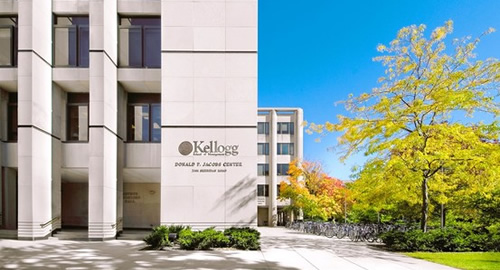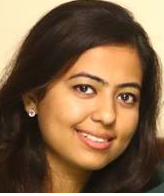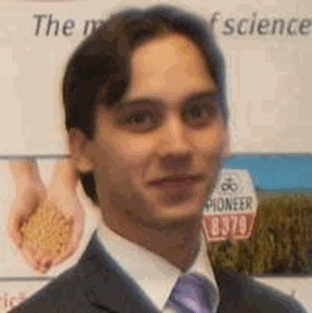
Kellogg
has released its application deadlines and essays for the 2020-21 application
season. The essay questions remain unchanged from last year. The first question
asks about your leadership experience and the impact made, and the second
question asks about your values and motivation in life and work and their
influence on you
. Application Deadlines: Application Deadline Decision Released Round 1
September 16, 2020
December 9, 2020
Round 2
January 6, 2021
March 24, 2021
Round 3
April 7, 2021
May 12, 2021
The 2020 MBA application is live now. Applications are due no later than 5 p.m. CT on the
application deadline date.
If
you're an international applicant, Kellogg encourages you to apply in Round 1
or 2 to allow time for your visa application
.Essays:Kate
Smith, Assistant Dean of Admission and Financial Aid at Kellogg advises in her blog post:
"From our conversations with
students, we know that the most challenging trait to demonstrate and evaluate
continues to be
leadership. We're looking specifically for
examples of spearheading change, striving for excellence or creating a
lasting impact. We want our students to be the kind of people who aim to
leave an innovative mark on their companies before and after Kellogg."
Here is MER's analysis of the essay questions:
Written
Essay 1: Kellogg's purpose is to educate, equip & inspire brave leaders who
create lasting value. Tell us about a time you have demonstrated leadership and
created lasting value. What challenges did you face, and what did you learn?
(450 words)This
question asks the applicants to recount a leadership experience in which they
made a significant impact while overcoming challenges and learning something
that helped them in similar situations in the future. Please note the word "brave
leaders" and choose a leadership example in which you stepped outside your
comfort zone to guide people around you towards a goal.
Regarding
examples of leadership, you may choose stories from your personal or
professional experiences. Make sure that the impact you have made and the value
you have created is not only in terms of dollar amounts or percentages but also
in terms of the challenges faced. The examples can be handling an uncooperative
team member, or a supervisor, taking a decision with insufficient information,
convincing someone of your innovative ideas, handling a new project, meeting
stringent deadlines, managing a client's expectations, or resolving the
conflict between two team members, etc.
In
these exceptional times, when the whole world is dealing with a global health
crisis, what actions you took to do your part in helping people that made a difference
in their lives? Did you take the initiative to make masks or PPE for the
hospitals, or did you private tutor kids,
or got involved with a local NGO to contribute in any way you could, or connected
with your alma mater in their virtual efforts to help the underprivileged. Maybe you stepped up to volunteer in your
community and helped an old and physically disabled people in your neighborhood
with groceries or medicines or took the responsibility of your family as your
parents have immunity issues. During this ongoing crisis, you can show
leadership in many different ways. The key is you stepped out of your comfort
zone at this challenging time, took the reins, and made a difference.
As always, we recommend you follow
the 4-part STAR framework below:
- Situation: what was the situation/ challenge? Who were the people
involved in this situation- players, stakeholders? - Task: what you needed to accomplish? What conflict/ challenges did
you encounter? - Action: What were the actions you took? Describe this in detail as
it will become a crucial part of your essay. - Result/
Impact: What was the outcome of your
leadership efforts? Were you able to address the situation? What "lasting
value" you created? What lessons did you learn?
Since
the second part of the essay question asks you to share what the experience
taught you, you must explain at length why that experience is meaningful to
you, in terms of what you achieved and what you learned about yourself. The
experience may have revealed to you your strong attributes, which you might not
have been aware of earlier. For example, you might have never known that you
could rise to the occasion to contribute to the ongoing crisis, but this complicated
situation offered you an opportunity to lead people that yielded great results.
You may wrap up the essay with a final note about how you are now applying or
trying to apply those lessons in similar situations.
You
may also use this essay as an opportunity to comment on a leadership position
you are interested in holding as a student at Kellogg and add value to the
Kellogg community.
Kate
Smith's advice: This question is unchanged. We're
looking for those individuals who have found or plan to find unique ways to
demonstrate the Kellogg purpose in their careers. As you consider leadership,
in particular, keep in mind that Kellogg was the school that pioneered the
team-based learning model that is now ubiquitous among the top business
schools. We want all of our students to be able to step up when their teams
need them.
Written
Essay 2: Values are what guide you in your life and work. What values are
important to you, and how have they influenced you? (450 words)This
essay requires applicants to do a significant amount of self-reflection to
understand what values and beliefs are meaningful to them. Simply discussing
values that you think will impress the admission committee members will not
work here as it is crucial to explain how you have demonstrated those values/
beliefs in your life.
Also,
please don't be tempted to provide a laundry list of values. You may discuss
only 2-3 values, and back up your statements with concrete examples from your
life (personal or professional). Also, explain how these values have shaped
your personality and have influenced your decisions and actions.
You may wrap up your essay by
stating how you will enrich the Kellogg community through these values.
Kate
Smith's Advice: Our goal is to uncover what
motivates and inspires you. What drives you? How will this make you a
meaningful member of the Kellogg community?
Reapplicant Essay:Since your previous application,
what steps have you taken to strengthen your candidacy? (250 words)This
is a straightforward
re-applicant essay. Through this question, the Ad Com would like to know if
your need for the Kellogg MBA is as strong as it was last time. Hence you
should demonstrate your continued interest in Kellogg by explaining how you
have enhanced your application since you applied last time. Focus on the areas
you have improved upon since you applied last. Whether you have taken extra
classes, boosted your GMAT score, received a promotion, led a new and exciting
project, increased your community involvement, taken on a personal challenge, or
articulated your goals, the key here is to demonstrate that you are now a
stronger candidate. Your conscious efforts to strengthen your profile and to
work on your weak areas will prove how determined you are about your Kellogg
MBA.
Additional Information Essay:All applicants have the opportunity
to provide explanations or clarification in Additional Information. Use this
section if you think the person reviewing your application might have a few
questions about one or more of your responses. This could include:- Unexplained gaps in work experience
- Academic, GMAT or GRE performance
- Extenuating circumstances that we should be aware of
when reviewing your application
The purpose of this essay is to address a weakness in your profile. For example, if you have a lower than average GMAT score, any grades below a C on your transcript, academic probation, or a significant employment/education gap, you can explain that in this essay. Also, if you cannot get your recommendation letter from your current supervisor, you should explain that in the optional essay. Your response should be positive, straightforward, and fact-focused and should not sound like you are making excuses for a weakness in your profile. To provide a context for a weak area in your profile, make sure your reason is genuine to convince the Ad Com that your low grades or employment gap occurred due to unforeseen circumstances beyond your control. First, explain the facts, then show how you have addressed the issue, and finally, conclude by explaining why this will not impact your ability to handle the academic rigor of the program.
This question is entirely optional. If you don't
have any areas of concern, you may not write this essay.
Video Essays:Kate
Smith:"Kellogg introduced the video essay several years ago to provide the
chance to "meet" our applicants around the world. It also lets us
assess your communication skills through a medium that has overtaken the
business landscape."
Kellogg has retained its video
essays.
Video essay 1: Please introduce
yourself to the admissions committee.This
question allows you to present your personality to the Ad Com and your
classmates. You can discuss your cultural background, motivation, personal and
professional goals, hobbies/interests, and issues that pique your interest. The
motive is to tell them who you are. Since you will be discussing your plans in
your second video essay, you may just touch upon them in this video essay.
Kate
Smith's advice: "Consider this your
opportunity to share what you would want your future Kellogg classmates and our
admissions committee to know about you. What makes you, you?"
Video
essay 2: What path are you interested in pursuing, how will you get there, and
why is this program right for you? The
second question provides you an opportunity to describe your plans for the
future and how Kellogg will help you achieve them. Since the written essays do
not offer you a chance to discuss your post-MBA goals and why you are applying
to Kellogg, this is a great place to show how your goals are in line with the
offerings and resources of Kellogg.
Kate
Smith's advice: "This is an intentionally
broad question so you can answer honestly and meaningfully. We want to know
what set you en route to pursuing an MBA and why you're choosing a particular
Kellogg
Full-TimeProgram."
Video
essay 3: The
third question will ask about a challenge you've faced.
Kate
Smith's advice: Each of you will receive a randomly selected prompt, all of
which have the same objective. We want you to show us how you handled a
challenging situation in your career or personal life. For example, we might
ask you to tell us about a time you failed to achieve a goal you had set for
yourself.
This
is typically an interview-style question and is usually related to the
workplace or your leadership skills, for example, "Tell us about a time
when you had to make a difficult decision?" or "Tell me about a time
when you overcame an obstacle in the workplace."
The
Kellogg application suggests some sample questions that you can use to prepare
for video essays. You should practice as many times as you like until you get
comfortable with the format and technology. You may prepare MBA related
questions as well as non-work questions about your interests/ passions and
volunteer work. Add more items to the list and begin practicing. Also, it's a
great idea to seek the help of family or friends and get their feedback on your
topics and delivery style so you can improve yourself accordingly in your next
recording.
You
will have 20 seconds to think about the question and up to one minute to give
your response. So timing is the crucial thing in this response. Please note
that you will not get a second chance to record your answer to the official
video essay questions. So make sure to practice to get a clear sense of how
much time you need to think and record your response.
Click
here for Kellogg's
Tips on Video essays .
Kate Smith's tips for completing the 2020-21Kellogg applicationFree Resources:10 Key Essay Tips with ExamplesEssay Analysis of Other Top Programs-2020-21MER Students Share their success StoriesCase StudiesYou
may also be interested in Kellogg alumnus Eduardo's advice.
Kellogg Second Year Student Shares his experience /adviceAlso, check out Kellogg admit Rohit's
story:
Indian Doctor and Civil Cervices Officer's Journey toKelloggSince 2011, MER (
myEssayReview) has helped many applicants get accepted into the top
20 MBA programs. (Poonam is one of the
top 5 most reviewed consultants on the GMAT Club.)
Do you have questions about your
application? E-mail Poonam at
poonam@myessayreview.com or sign up
here for a free consultation.




















